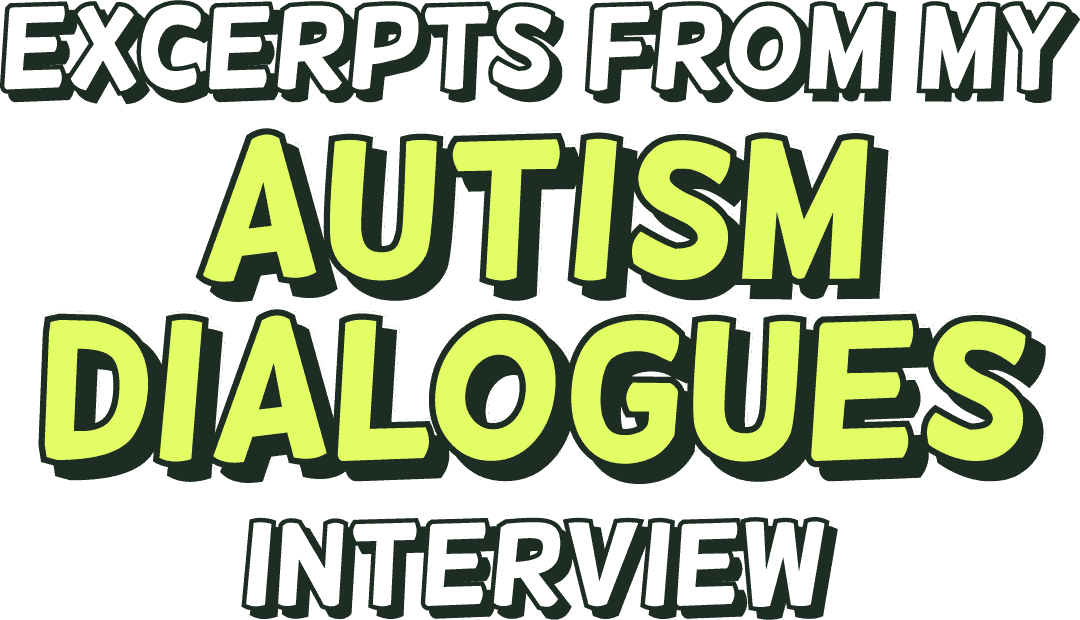I was recently interviewed by Autism Dialogues. I really loved the questions they asked me on how my experiences as a Singaporean Autistic differs from Autistics in other cultural contexts, how my workplace accommodates me, what punk and alternative music means to me, and more.
Punk and alternative music naturally appealed to me as a misfit and isolated teenager. I felt alienated and had a lot of repressed anger, so the music was a cathartic outlet for me.
Looking up to musicians in that genre also gave me the strength and resilience to always get back up after facing major setbacks in life. Their rebellious and defiant attitude was (and still is) a great inspiration to me. (Zack de la Rocha from Rage Against the Machine is currently my biggest inspiration!)
Punk and alternative music was pretty much the only thing I could relate to in the world as a teenager, so it defined a huge part of my identity before I discovered I was Autistic.
I’ve always assumed that I had low support needs. But I recently realised that my support needs only appear low in the context of my country, Singapore. It’s socially acceptable here to live with your parents as an adult, so I’ve always had help with household chores, cooking, errands, answering phone calls, and more. Public transport is super convenient and easy to navigate, so driving is unnecessary. Small talk with strangers and acquaintances isn’t common. Most things in this country are run in an orderly and predictable manner.
Had I lived in another country, I’d probably be considered medium support needs instead. People who have low support needs in other countries probably wouldn’t get diagnosed or even realise they’re Autistic if they grew up in Singapore. (But that’s just personal speculation based on my experiences.)
Singapore is a very conservative and competitive society. You’re constantly compared to your peers for your whole life in terms of school grades, career, and wealth. There’s huge pressure to follow a set path in life: get good grades in school, go to a good university, get a sensible job (i.e., no career in the arts), find a (heterosexual) partner, get married so you can buy subsidised public housing, start a family.
Your worth is tied to how well you conform to this path. If you can’t keep up, the onus is on you to “fix” yourself, because “you can’t expect the world to accommodate to you.” (I was often told this as a child.)
Even when compared to other capitalist societies, I think Singapore is less accepting of alternative life paths. Singapore has no natural resources, so it is heavily reliant on its people for economic growth.
I grew up feeling very broken and a huge burden to everyone. It took me a long time to realise I was raised in an environment that simply wasn’t built to include people like me.
To me, being Autistic As Fxxk means being proudly and unapologetically Autistic in a society that tells you that you should be ashamed and do all you can to minimise and compensate for your autism.
I chose the name for my Instagram and blog because I wanted something that conveys self-empowerment and defiance, in a “this is who I am, fuck you if you think I’m broken” kind of way. It ties my Autistic and punk identities together.
Autism Dialogues is an autistic-led project that highlights the lived experiences and thoughts of autistic people through interviews on a range of topics. It is a safe space where interviewees can freely share their insights, stories, opinions, and experiences without judgement.
If you’d like to be interviewed for this project, get in touch with Autism Dialogues!
